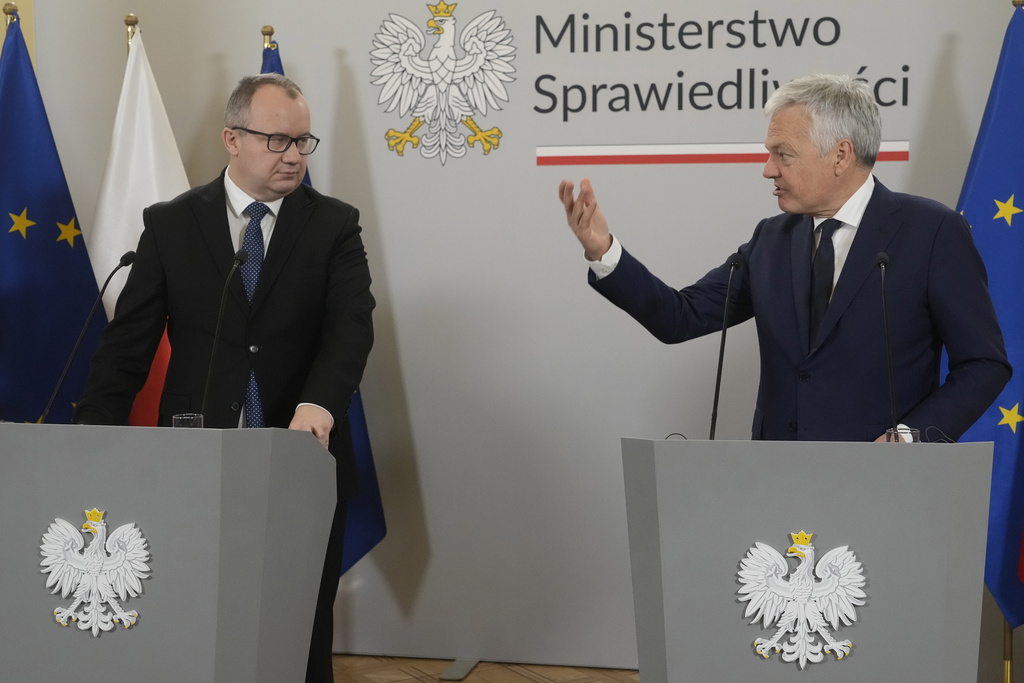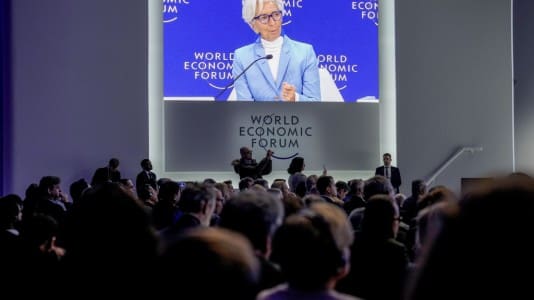European Commissioner for Justice Didier Reynders‘ recent visit to Poland, aimed at evaluating the country’s commitment to restoring the rule of law, turned out to be more about political theater than legal scrutiny. In meetings with the foreign minister and the minister of justice, one would have expected a rigorous examination of Poland’s legal framework. However, what transpired seemed less about the law and more about political posturing.
Former Deputy Foreign Minister Paweł Jabłoński raised a pertinent question: If the goal is to assess the law, should not one start by examining the statutes? Since the current coalition took power on Dec. 13, no new laws have been enacted, no legal changes have been made. The government’s approach appears to be more about forceful, police-like methods and making decisions in the parliament rather than legal reform.
This situation mirrors the previous allegations of law-breaking under the Law and Justice (PiS) party, yet the Brussels bureaucrat seems surprisingly optimistic. At a press conference, Reynders spoke of the European Union being “based on values” and the European Commission’s full commitment to supporting the Polish government.
But what does this actually mean? Jabłoński interprets this as empty rhetoric from the commissioner, confirming that the commission’s actions are driven by politics, not law.
A question about the current government’s legal violations was raised at the press conference, but Reynders only promised “to look into it.” Jabłoński criticized this response, highlighting instances of forceful interference in public media and attempts to politically subjugate the prosecutor’s office, pointing to a severe politicization of these institutions.
Jabłoński also criticized the current government’s subservient attitude, exemplified by an incident during Reynders’ visit. Justice Minister Adam Bodnar, seemingly attempting to appease Reynders, presented him with a photo of rebuilt Warsaw, as if to make up for a previous occasion when Minister Zbigniew Ziobro showed images of Warsaw destroyed by the Germans. This act, according to Jabłoński, goes against Poland’s interests and reflects an inferiority complex and a servile mentality.
Indeed, the manner in which the guest from Brussels was received bordered on sycophantic. Bodnar has previously expressed enthusiasm for the new government’s policies gaining approval from foreign officials, including the American ambassador. Now, he can add a European bureaucrat to his list of those signaling their approval. Judging by Adam Bodnar’s radiant excitement and blissful smile, one might guess that Reynders’ visit was more about a victory lap rather than addressing substantial issues.
In the grand scheme of things, Reynders, an unelected international bureaucrat, should be the petitioner in these scenarios. He comes to his employers without a democratic mandate, yet they regard him as if he were a corporate executive from abroad. Reynders’ personal career, as a former deputy prime minister and foreign minister of a small European country, does not necessarily inspire awe, yet his visit commands the attention of half the government of a significant European nation.
This situation reveals a troubling reality: No amount of political or state potential, no diplomatic or official rank, can compensate for a mindset of servility and provincial inferiority seen in much of the Polish political class on the left. Regrettably, the current Polish leaders behave more like secretarial staff in a remote district office rather than ministers of a substantial nation.





